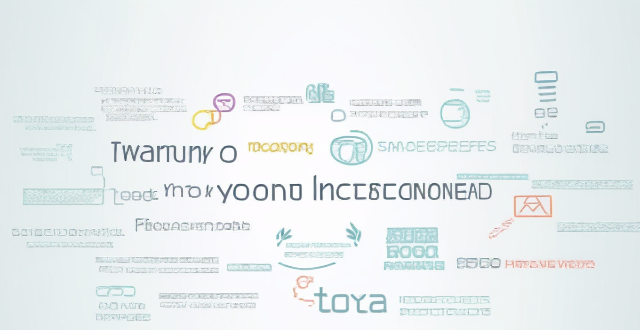Personal Image

How can I measure the effectiveness of my personal image ?
Measuring the effectiveness of your personal image is crucial for maintaining a positive reputation and achieving your goals. Here are some ways to evaluate how well your personal image is working for you: - Self-Assessment: Ask yourself if you're confident in your appearance, communication style, and behavior, and if you receive positive feedback from others. - Feedback from Others: Seek honest opinions from trusted friends, family members, or colleagues about your personal image. - Observe Reactions: Pay attention to how people react when they meet you for the first time to gauge your first impression. - Track Your Success: Keep track of your achievements and setbacks to see if your personal image is helping you achieve your goals. - Online Presence: Check your social media profiles and websites to ensure they reflect the image you want to project, and pay attention to online engagement as an indicator of effectiveness. - Professional Development: Consider taking courses or attending workshops to enhance your personal image, and evaluate whether these efforts have led to improvements. Continuously assess and adjust your approach as needed to maintain a positive and impactful personal brand.

What are the benefits of having a well-defined personal image ?
Having a well-defined personal image is crucial for individuals in both their personal and professional lives. It can significantly impact how others perceive them, which can lead to various opportunities and advantages. A well-defined personal image can help establish credibility and trustworthiness, make positive first impressions, increase professional opportunities, enhance self-confidence, improve interpersonal relationships, become a more influential leader, and gain greater control over one's reputation. By actively managing how you present yourself online and offline, you can ensure that people have an accurate understanding of who you are and what you stand for.

In what ways can social media impact my personal image ?
Social media has become an integral part of our daily lives, and it can significantly impact our personal image. Here are some ways in which social media can affect how others perceive us: Positive Effects: - Building a Professional Brand: Social media provides networking opportunities and allows individuals to showcase their achievements and expertise. - Enhancing Personal Reputation: Individuals can project a positive image by sharing accomplishments, hobbies, and interests, and engage with followers to build a loyal community. Negative Effects: - Damaging Professional Reputation: Posting unprofessional content or oversharing personal information can harm one's professional image and lead to privacy breaches. - Harming Personal Reputation: Cyberbullying and sharing false information can damage mental health and make individuals appear unreliable or irresponsible. Managing Your Online Presence: - Best Practices for Maintaining a Positive Image: Monitor your content, use privacy settings, think before you post, and maintain consistency across platforms. - Handling Negative Situations: Address mistakes proactively and seek professional help if necessary. Overall, social media can be a powerful tool for enhancing or damaging one's personal image. By being mindful of what you share online and actively managing your digital footprint, you can use social media to your advantage while minimizing potential risks.

How often should I update my personal image to stay relevant ?
The text discusses the importance of updating one's personal image to stay relevant in a rapidly changing world. It emphasizes that updating your personal image doesn't mean chasing every trend but evolving authentically to represent who you are and where you're going. The frequency of updates should be based on significant life changes, seasonal changes, and an annual review of your image. Elements to consider for updates include appearance, online presence, skillset, and network. Practical tips for updating your personal image include staying informed, seeking feedback, investing in quality, and embracing change. Overall, the text suggests that regular updates to your personal image can help maintain and enhance your personal brand, opening doors to new opportunities and ensuring success in both personal and professional life.

What are the long-term effects of neglecting my personal image ?
Neglecting your personal image can have long-term negative effects on various aspects of your life, including relationships, career opportunities, and overall well-being. It can make forming new connections difficult, strain existing relationships, limit professional advancement, and make finding employment more challenging. Additionally, neglecting your personal image can lead to lower self-esteem, confidence, and increased stress and anxiety. However, improving your personal image through quality clothing, good hygiene, regular exercise, practicing good posture, and seeking professional help when needed can positively impact your life in numerous ways.

How do celebrities manage their public image to support their personal brand ?
Managing public image is crucial for celebrities to support their personal brand and overall success. They build a strong personal brand by identifying unique qualities, values, and goals, collaborate with experts in fashion, styling, and branding, and maintain consistency across platforms. Social media plays a significant role, with effective strategies including engagement, content creation, and collaborations. Privacy is maintained through selective sharing, private accounts, and security measures. Crisis management involves quick response, damage control, and rebuilding trust. Collaborating with charities and philanthropic organizations enhances public image, while professional appearance and conduct are maintained through grooming, wardrobe, and public speaking skills.

How can I maintain a consistent personal image across different platforms ?
Maintaining a consistent personal image across different platforms is crucial for building a strong online presence and establishing trust with your audience. To achieve this, define your brand identity, use a consistent tone of voice, create a style guide, be active on all platforms, and monitor your online presence regularly. By following these tips, you can ensure that your personal image remains consistent and positive across all platforms.

How can networking events help me enhance my personal image ?
Attending networking events can significantly enhance your personal image by establishing industry presence, expanding professional circles, offering learning opportunities, showcasing expertise, and building a positive reputation. To make the most out of these events, dress appropriately, be prepared with an elevator pitch, practice active listening, follow up with connections, and contribute value whenever possible. These strategies not only improve your professional image but also open doors to new opportunities and collaborations.

How can I distinguish myself from others with a unique personal image ?
**How to Establish a Unique Personal Image** 1. **Identify Your Passions and Interests**: List your hobbies and reflect on your values. 2. **Develop Your Skills and Expertise**: Keep learning and specialize in a niche within your field. 3. **Craft Your Style**: Create a signature style and pay attention to personal grooming. 4. **Build Your Digital Presence**: Curate social media profiles and create a personal website or blog. 5. **Network with Like-minded People**: Join communities and attend relevant events. 6. **Showcase Your Achievements**: Compile a portfolio and collect testimonials. 7. **Stay True to Yourself**: Maintain authenticity and focus on self-improvement.

What role does clothing play in developing a professional image ?
Clothing plays a crucial role in developing a professional image by impacting first impressions, communicating professionalism, and influencing perception. It can also promote diversity and inclusion in the workplace. By dressing appropriately for the job or industry, you set a positive tone for your professional interactions, boost confidence, enhance credibility, and represent your personal brand or company. Adhering to dress codes demonstrates an understanding and respect for the culture of your field, while neat and well-organized attire shows attention to detail. Studies suggest that dressing more formally can make you appear more competent and knowledgeable, while appropriate clothing can also make you seem more approachable and adaptable. Allowing some degree of personal expression through clothing can promote diversity and individuality within the workplace, while respectful dressing can acknowledge diverse cultural backgrounds in a multicultural work environment. Overall, clothing is a tool for communicating your professional identity, and finding the right balance between professionalism and personal style is key to enhancing your professional image and effectiveness.

How do celebrities balance their personal brand with their professional image ?
Celebrities face the challenge of maintaining a cohesive image across their personal brand and professional endeavors. They achieve this by understanding the distinction between these two aspects, ensuring consistency in messaging, being transparent and authentic, leveraging social media effectively, collaborating with professionals, adapting to evolving perceptions, managing public perception during personal milestones, incorporating philanthropy, and embracing diversity in roles and endorsements. By employing these strategies, celebrities strive to present a unified front that resonates with fans and critics alike, ensuring their star power remains intact across both realms.

How do celebrities balance their public image with their charity work ?
Celebrities navigating the challenge of maintaining a positive public image while engaging in charity work can adopt several strategies: 1. **Authenticity**: Genuine care for supported causes resonates with the public and fans. 2. **Transparency**: Open communication about charitable activities builds trust and avoids overpromising. 3. **Alignment with Personal Brand**: Selecting causes that align with their personal brand maintains consistency in their public image. 4. **Engage with Fans**: Interacting with fans about charity work fosters community and encourages involvement. 5. **Consistency**: Regular involvement shows long-term commitment rather than fleeting interest. 6. **Avoid Controversy**: Stay away from polarizing issues to prevent backlash on public image and charity. 7. **Collaborate with Other Celebrities**: Joint efforts amplify reach and show unity among peers. 8. **Measure Impact**: Showcasing tangible results demonstrates the effectiveness of their charitable efforts. 9. **Seek Professional Advice**: Consulting experts helps navigate complexities in balancing public image and charity work. By following these strategies, celebrities can balance public image with charity work, ensuring benefits for both their supported causes and their reputation.

What role does social media play in shaping a celebrity's image and brand ?
The text discusses the role of social media in shaping a celebrity's image and brand. It outlines six key ways in which social media impacts a celebrity's public perception and personal branding: connecting with fans, controlling the narrative, promoting projects, endorsements and sponsorships, crisis management, and personal branding. The text emphasizes that social media is an integral part of modern society and plays a significant role in building a loyal fan base, generating buzz for projects, expanding reach and influence through endorsements, handling crises effectively, and developing a distinct personal brand.

What are the key elements of a strong celebrity personal brand ?
A strong celebrity personal brand is essential for maintaining relevance and influence in the entertainment industry. It helps establish a unique identity, build a loyal fan base, and generate lucrative opportunities. Here are the key elements of a strong celebrity personal brand: 1. Clear Brand Identity 2. Consistent Messaging 3. Engaged Audience 4. Diverse Content Creation 5. Professional Image Management 6. Monetization Strategies

How do celebrities use social media to promote their personal brand ?
Celebrities use social media to promote their personal brand by being authentic, engaging with fans, collaborating with others, maintaining consistent brand messaging, and promoting their own projects.

What are the do's and don'ts of personal branding ?
Personal branding involves creating an image or impression in the mind of others about an individual's unique attributes, skills, and values. Some do's include being authentic, defining your target audience, building a strong online presence, networking strategically, staying consistent, continuously learning and evolving, showcasing your achievements, and providing value. Some don'ts include being dishonest, overselling yourself, neglecting your online reputation, copying others, focusing solely on quantity, ignoring feedback, spreading yourself too thin, and neglecting personal development. By following these guidelines, you can create a strong and authentic personal brand that positions you as a leader in your field.

How do national sports teams represent their country's image on the international stage ?
National sports teams play a crucial role in representing their country's image on the international stage. They are seen as ambassadors of their nation, showcasing values, culture, and spirit through their performances and behavior. Athletes inspire national pride and promote cultural exchange, uphold ethical standards, and embody national spirit. Successful performances enhance prestige, while handling setbacks with grace demonstrates resilience. Supporting national sports teams fosters national identity and pride globally.

Can sports help individuals achieve their personal goals ?
Sports have been an integral part of human civilization for centuries. They are not only a source of entertainment but also serve as a platform for personal growth and development. Many individuals engage in sports to achieve their personal goals, be it physical fitness, mental well-being, or social interaction. One of the most obvious benefits of sports is improved physical health. Engaging in regular physical activity can lead to reduced risk of chronic diseases such as heart disease, diabetes, and obesity, strengthened bones and muscles, improved cardiovascular health, and better sleep quality. Sports can also aid in weight management by burning calories and increasing metabolism, leading to weight loss or maintenance. Engaging in sports can help reduce stress levels by releasing endorphins, which are natural mood boosters. This can lead to improved mood and reduced anxiety, as well as better coping mechanisms for stressors in life. Participating in sports can also boost self-esteem by providing a sense of accomplishment and pride, leading to increased confidence in one's abilities and improved body image and self-worth. Sports often require teamwork and communication, which can help individuals develop these skills outside of the sporting arena. This can lead to improved interpersonal relationships and enhanced leadership abilities. Participating in sports can also provide networking opportunities, allowing individuals to meet new people who share similar interests. This can lead to new friendships and professional connections, as well as an expanded social circle and support system. In conclusion, sports can play a significant role in helping individuals achieve their personal goals. Whether it be physical fitness, mental well-being, or social interaction, sports offer numerous benefits that can positively impact various aspects of one's life. By engaging in sports regularly, individuals can work towards achieving their personal goals while enjoying the many benefits that come with it.

What kind of accessories are appropriate and enhance a woman's professional image ?
In the article "Appropriate Accessories to Enhance a Woman's Professional Image," the author discusses the importance of selecting the right accessories to enhance a woman's professional image. The author suggests that women should keep their jewelry simple and understated, opt for classic timepieces, choose structured handbags that are large enough to carry essentials yet sleek enough to maintain a polished appearance, select well-chosen scarves in neutral colors, and consider ties or blazers for more formal settings. Overall, the key points emphasize the importance of keeping accessories simple, sophisticated, and practical to achieve a polished and professional look.

How do I ensure that my clearance sale doesn't negatively impact my brand image ?
Clearance sales are a common practice for many businesses, but it's essential to ensure that they don't negatively impact your brand image. Here are some tips on how to do so: 1. Set Clear Objectives: Before launching your clearance sale, set clear objectives for what you want to achieve. This will help you stay focused and avoid making decisions that could harm your brand image. 2. Be Transparent About the Sale: Be transparent about why you're having a clearance sale and what items are included. This will help customers understand the context of the sale and prevent any confusion or misunderstandings. 3. Maintain Quality Standards: Even though you're offering discounted prices, it's important to maintain your usual quality standards. Don't compromise on product quality or customer service just because it's a clearance sale. 4. Use Targeted Marketing: Use targeted marketing strategies to reach your ideal customers during the clearance sale. This will help you avoid attracting bargain hunters who may not be interested in your brand beyond the sale. 5. Offer Limited-Time Discounts: Consider offering limited-time discounts instead of slashing prices across the board. This will create a sense of urgency and encourage customers to make a purchase before the sale ends. 6. Follow Up With Customers: After the clearance sale is over, follow up with customers who made purchases. Thank them for their business and ask for feedback on their experience. By following these tips, you can ensure that your clearance sale doesn't negatively impact your brand image while still achieving your goals.

How do celebrities balance their personal and professional lives on social media ?
Balancing personal and professional lives on social media can be challenging for celebrities. Clear boundaries, separating personal and professional accounts, scheduling posts wisely, engaging with followers appropriately, and seeking professional help when needed are effective strategies for maintaining this balance. By following these strategies, celebrities can maintain a healthy balance between their personal and professional lives on social media while still connecting with their fans in meaningful ways.

Can sports be used as a tool for personal growth and self-improvement ?
The text discusses the various ways in which sports can be used as a tool for personal growth and self-improvement. The author highlights the following aspects: - Mental toughness and resilience: Facing challenges and overcoming failure through sports can cultivate mental toughness and build resilience. - Teamwork and communication: Working together and effective communication are essential skills developed through team sports, which can enhance interpersonal relationships and group dynamics. - Discipline and time management: The structured approach required in sports can improve personal organization and time management skills, along with goal setting and strategic thinking. - Physical health and well-being: Sports contribute significantly to physical health by promoting fitness and endurance, and can also improve mental health by combating depression and anxiety. - Leadership and initiative: Sports provide opportunities for individuals to step up as leaders and develop problem-solving abilities, encouraging proactive behavior. - Self-confidence and self-esteem: Achieving mastery in sports can boost an athlete's confidence and self-esteem, fostering a positive self-image. - Adaptability and learning agility: Sports require athletes to adapt quickly to new tactics or game plans, encouraging a mindset of continuous learning that extends beyond the sporting realm. Overall, the text emphasizes that sports offer a comprehensive toolkit for personal development, encompassing benefits that extend far beyond the playing field. Engaging in sports can be a powerful catalyst for self-improvement and personal growth.

How do celebrities establish and maintain a successful personal brand ?
Celebrities establish and maintain a successful personal brand by defining their brand persona, building a strong online presence, being consistent in messaging and imagery, networking and collaborating with others, staying true to themselves, and continuously learning and evolving. A strong personal brand helps celebrities stand out in their industry and build a loyal fan base.

How do celebrity entrepreneurs balance their public image with their business responsibilities ?
Balancing public image with business responsibilities is crucial for celebrity entrepreneurs to maintain their personal brand and ensure the success of their ventures. Key strategies include consistent messaging, active social media presence, mindful public appearances, delegation, setting clear goals, continuous learning, aligning marketing strategies, collaborations, and transparency. By integrating these approaches, they can effectively navigate their dual roles, leveraging fame to drive business success while staying true to their personal brand.

What are some tips for building a strong personal brand ?
Building a strong personal brand is crucial in today's competitive world. It helps you stand out and showcase your unique skills, values, and personality. To build a strong personal brand, start by defining your brand through identifying your strengths, passions, and values. Develop your online presence by creating a professional website and optimizing your social media profiles. Establish your expertise by sharing your knowledge and networking with others in your field. Maintain consistency in your messaging and actions. Monitor your reputation by staying active online and addressing negative feedback calmly. Continuously evolve your brand by staying up-to-date and reassessing your brand periodically. Building a strong personal brand takes time, effort, and consistency, but it can help you achieve your goals and make a positive impact on those around you.

How do celebrities balance their professional and personal life to stay healthy ?
Balancing professional demands with personal well-being is a common challenge faced by celebrities. To maintain this equilibrium, they prioritize self-care through practices like meditation and therapy for mental health, and regular exercise and healthy eating for physical health. Setting boundaries, such as scheduled downtime and limiting public appearances, helps in separating work from personal life. Digital detoxes further aid in reducing stress from online interactions. Building a supportive network of family, friends, and professionals assists in managing daily stressors and offers emotional support. Pursuing hobbies and interests outside of their fame provides additional fulfillment. By implementing these strategies, celebrities can navigate the challenges of their profession while maintaining their health and well-being.

How can I protect my personal information online ?
In today's digital age, protecting your personal information online is crucial. To safeguard sensitive data, one should use strong and unique passwords, keep software and systems up-to-date, be careful with public Wi-Fi networks, be wary of phishing attacks, and limit the amount of personal information shared online. These steps can significantly reduce the risk of having personal information compromised online.

What role does nutrition play in maintaining personal hygiene ?
The article emphasizes the importance of nutrition in maintaining personal hygiene. It suggests consuming nutrient-rich foods, developing healthy dietary habits, and supporting the immune system through nutrition to improve overall health and hygiene.

How do I dress professionally as a woman without sacrificing my personal style ?
Dressing professionally as a woman doesn't mean sacrificing personal style. Here are some tips: stick to neutrals and classic colors, invest in quality basics, incorporate trendy pieces appropriately, pay attention to fit and cut, and accessorize wisely. By following these guidelines, you can create a wardrobe that reflects both your professionalism and personal style.